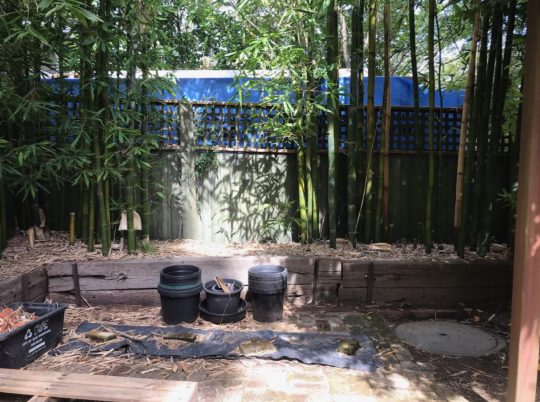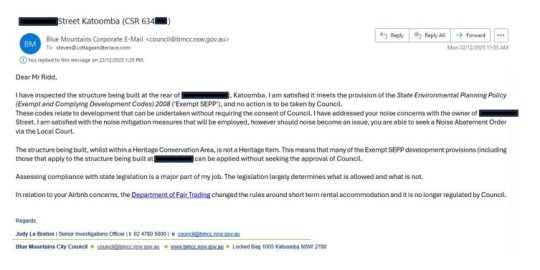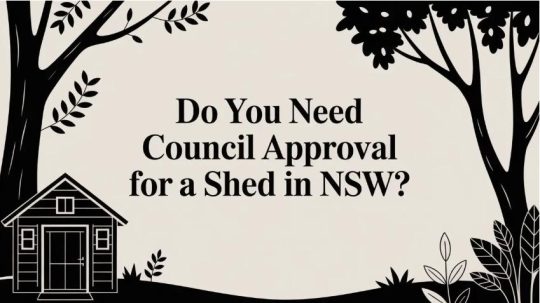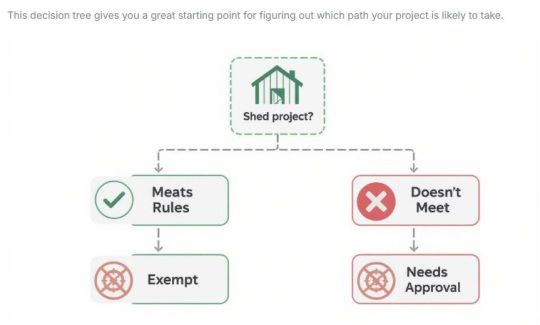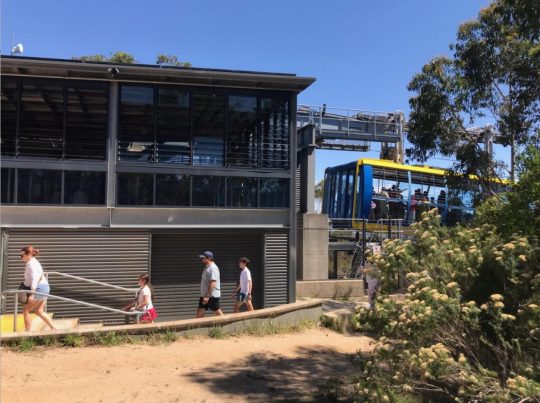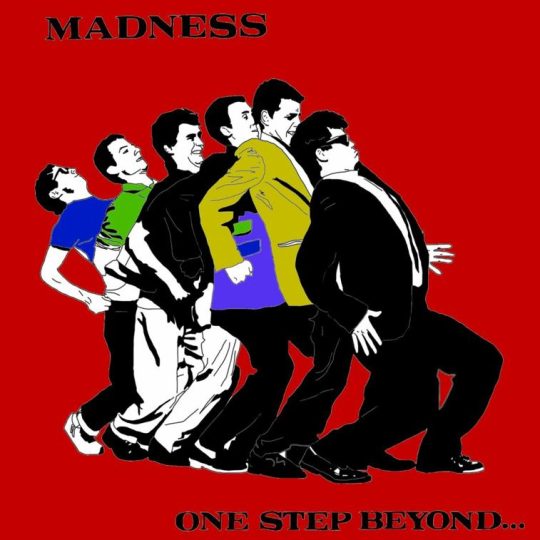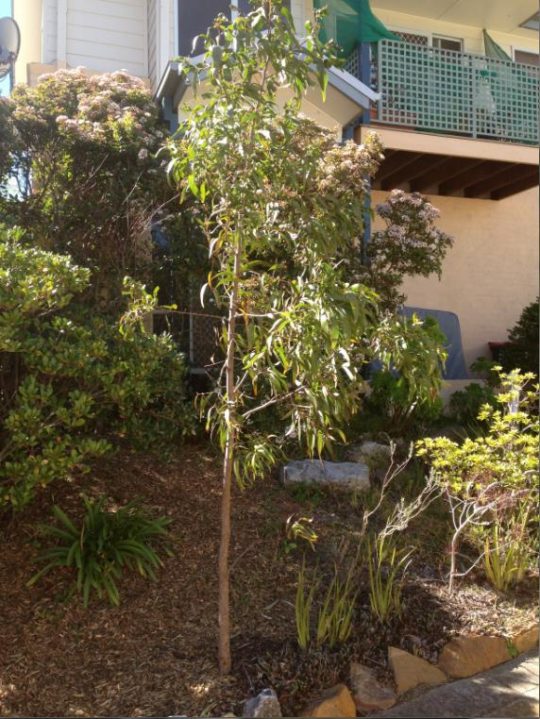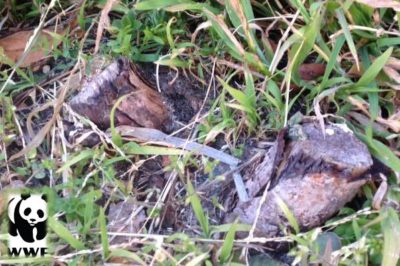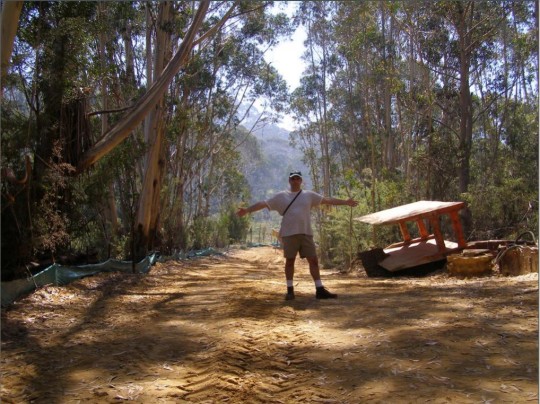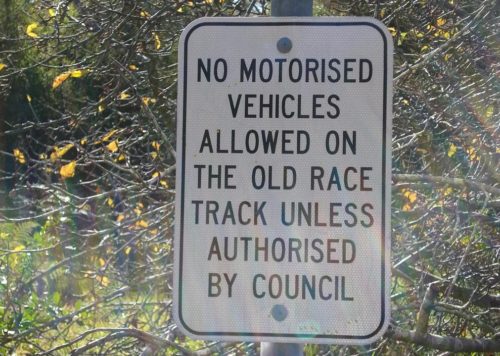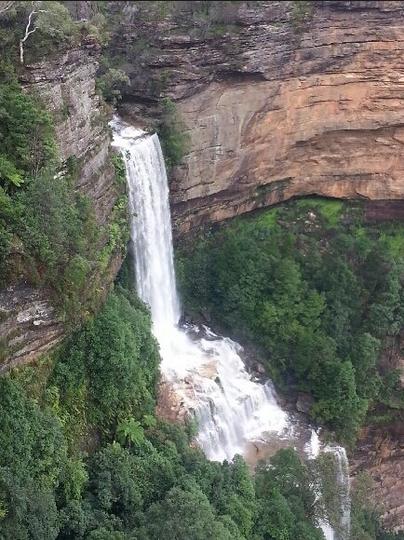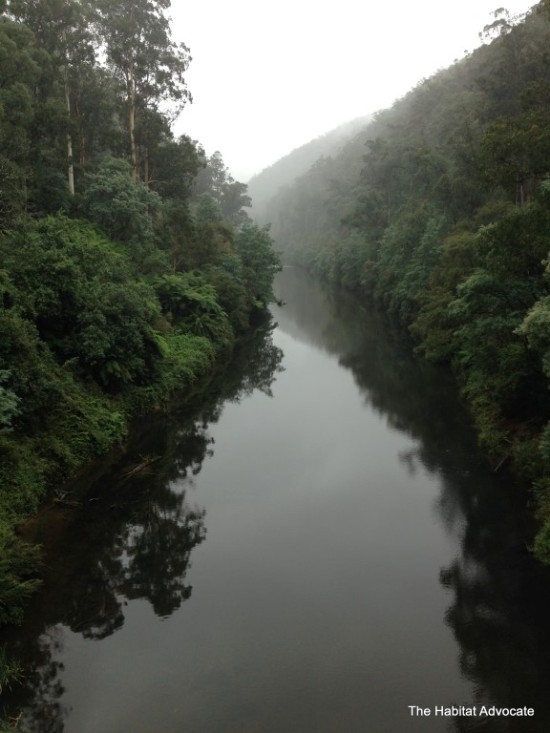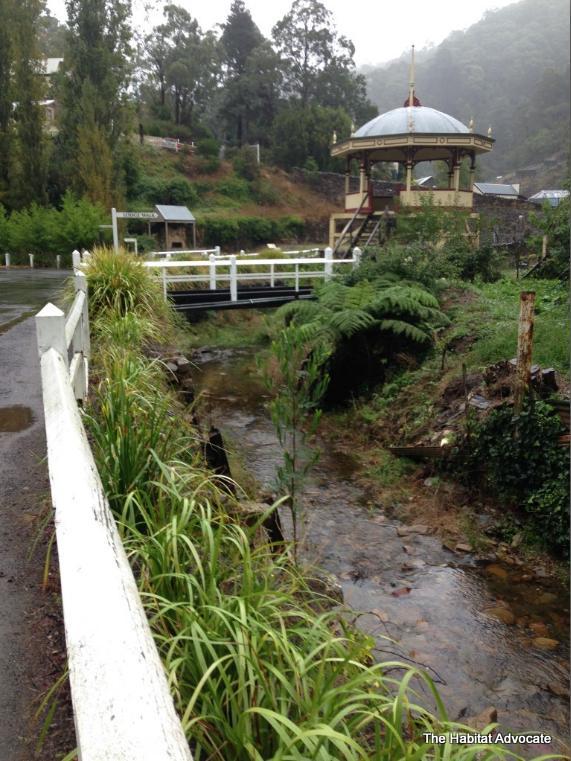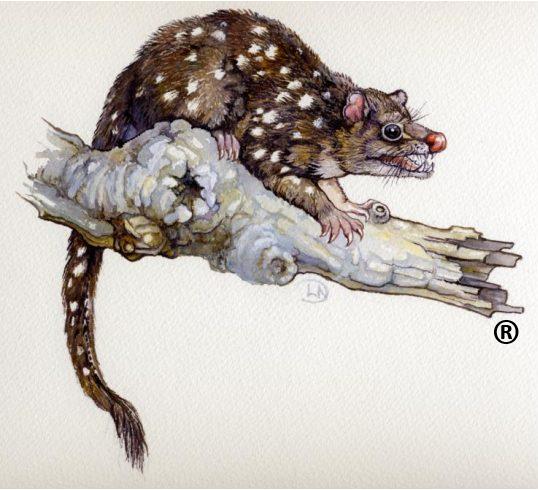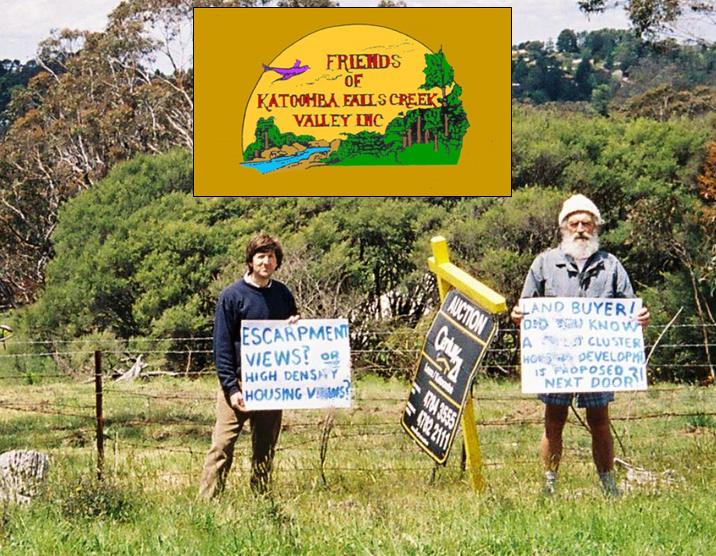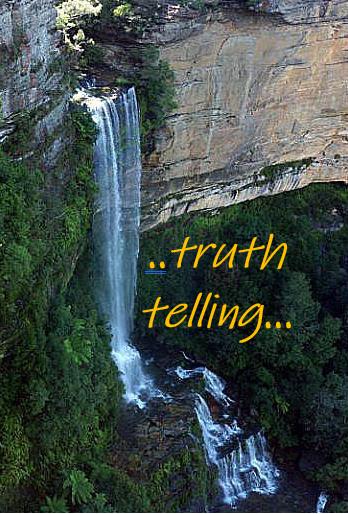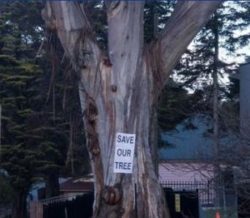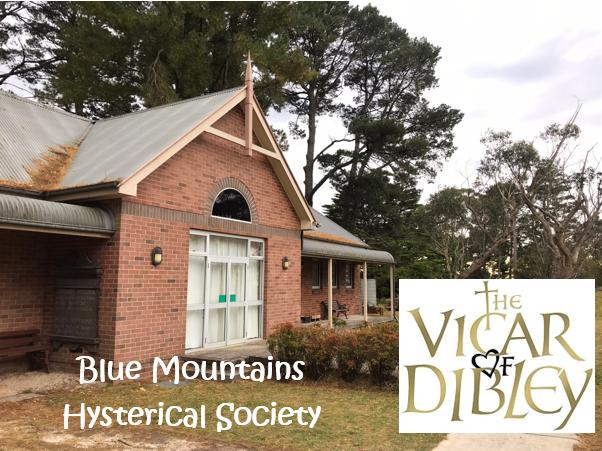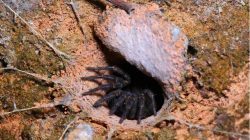Blue Mountains {city} Council’s development madness – all “sheds” are auto exempt – so Council: “nothing to see here!”
Saturday, January 10th, 2026Blue Mountains {city} Council’s corporatised cultural cop out dismissal of default developments as being just ‘exempt sheds‘ shows frankly just how much of a bubble zone the joint is in.
One’s unnecessary property development dispute drama here with an adjoining neighbour and his invasive backyard sauna on our fence line began on Monday 8th December 2025.
This photo below is of the imposing ‘sauna shed’ part-built on our backyard fence line that suddenly confronted us as we walked out our back door to our laundry. Construction of the new sauna had started with no notice to neighbours nor Council. [Note: yours truly taking photo]. Notably, construction was underway leading up to the Christmas holidays when Council would be closed for some weeks – think ideal timing for the WWII Japanese invasion – authorities uncontactable, as all being on extended leave!
Dec 2025: Over our fence appears some new backyard sauna (under cowboy construction in blue) for a new Airbnb conversion, a totally illegal backyard development over the top of two sewers (note manhole on right leaning under new sauna). The build is almost on our back fence for an owner retiring and taking off overseas and to bugger the holiday let party-invite consequences set to adversely impact us as adjoining neighbours. Council has deemed it to be a “shed” (read below response) and so auto-exempt from Council development approval. Yeah but, this is the third “shed” on this residential property site (and that’s a breach for starters).
Sounds like megalopolis over-developed Sydney spreading throughout the State of New South Wales by stealth.
Enter, Council’s Development ‘Senior Investigations Officer’ Ms Judy Le Breton that month to assess one’s concerns (NOT).
Well, a few weeks out from Christmas and governmental bureaucratic lockdown (aka ‘bugger the Japanese/these days Chinese threat’) one receives a quip rejection without explanation from Ms Le Breton thus:
“Dear Mr Ridd,
I have inspected the structure being built at the rear of [XXXXXX] Street, Katoomba. I am satisfied it meets the provision of the State Environmental Planning Policy (Exempt and Complying Development Codes) 2008 (‘Exempt SEPP’), and no action is to be taken by Council.
These codes relate to development that can be undertaken without requiring the consent of Council. I have addressed your noise concerns with the owner of [XXXXXX] Street. I am satisfied with the noise mitigation measures that will be employed, however should noise become an issue, you are able to seek a Noise Abatement Order via the Local Court.
The structure being built, whilst within a Heritage Conservation Area, is not a Heritage Item. This means that many of the Exempt SEPP development provisions (including those that apply to the structure being built at [XXXXXX] Street) can be applied without seeking the approval of Council.
Assessing compliance with state legislation is a major part of my job. The legislation largely determines what is allowed and what is not.
In relation to your Airbnb concerns, the Department of Fair Trading changed the rules around short term rental accommodation and it is no longer regulated by Council.
Regards,
Judy Le Breton | Senior Investigations Officer | BMCC …”
We note the cultural use of abbreviations and applied acronyms of invented terms by government bureaucrats.
We refer to this as ‘Le Breton Cop Out‘, that is “nothing to see here!”
Council feedback above is that new builds in Heritage Conservation Areas are not heritage items per se. They are what Council reckons are ‘exempt’ so nothing to see here by Council. Property owners, developers and builders can go for their lives. Be creative! These codes relate to development that can be undertaken without requiring the consent of Council.
As for noise from the sauna etc, should noise become an issue, you are able to seek a Noise Abatement Order via the Local Court. So cop out #2 – adversely impacted neighbours have to go to court and get a solicitor. Council: “Nothing for us to see here!”
As for the Airbnb invasion pandemic – Council: “Nothing for us to see here! Don’t ring Council, instead ring the Department of Fair Trading since the New South Wales (NSW) Government changed the rules around short term rental accommodation and it is no longer regulated by Council.”
What does NSW Fair Trading friggen know about Airbnb and holiday lets? Nothing. We checked their website, which is dodgy because it no longer uses the title Department of Fair Trading. It reads as follows:
“The enforcement of planning laws (fire safety (including overcrowding), planning approvals, parking or ongoing noise) remains with local council, and criminal laws (urgent noise issues) remain with police. The code of conduct does not change the existing complaint handling processes of local council and police.”
Source: ^https://www.nsw.gov.au/housing-and-construction/short-term-rental-accommodation)
So, the only thing the NSW Government’s Department of Fair Trading deals with in respect to Airbnb’s is not regulation, but just handing complaints about them; otherwise the NSW Government is allowing property owners run a holiday let in a free-for-all globalist unregulated landscape. It’s a repeat cop out of government regulatory accountability like San Francisco based Uber being carte blanche government invited to undermine/bankrupt Australian taxi licenses in a free-for-all. Council and Fair Trading: “Airbnb? Again , nothing to see here!”
This is undemocratic legislation by the NSW Government. Perhaps NSW Parliament House in Macquarie Street Sydney and in the Chifley Tower, where the NSW Government bureaucrats indulge on high; could sublet their offices to Airbnb as well, and work from home? Rules for some?
In the state of New South Wales, land use planning standards and laws have become so lax over recent years, that property owners and developers can more or less get away with murder. Consider the flammable illegal cladding of high-rise apartments in Mascot (inner Sydney) for starters!
Almost any development now is deemed ‘exempt’, as in – just go for it! Nothing to see here! Government has reckoned well it just can’t be arsed getting involved in anything less than what it considers to be ‘State Significant Development’ and of course it’s given such an acronym: ‘SSD’. Of course it has. Governments just have to have an acronym for everything government. It’s so only them know what they are talking about.
Let’s explain the policy. It’s termed ‘exempt development’ (State Environmental Planning Policy (Exempt and Complying Development Codes 2008) (bureaucratic acronym ‘SEPP’) – aka ‘nothing to see here!’
Garden Sheds?
Well, you can construct a ‘small’ garden shed on your property without council approval, provided it meets the (NSW) SEPP guidelines (Council interpretation permitted).
In theory, (on paper at least ) it must:
- Be no larger than 20 square metres.
- Have a height of no more than 3 metres (above ground level at least).
- Be located at least 900 mm from any boundary.
- This allows homeowners to add practical storage solutions without lengthy approval processes.
Yeah but, Council will ignore such conditions anyway, as Ms Le Breton just has in our case. So (to quote) “You do not need planning or building approval if your proposal complies with the exempt development standards“. No of course in lay terms ‘Environmental’ and ‘Planning’ together are an oxymoron.
‘Exempt‘ translates to ‘Council couldn’t give a crap’.
So, in the case of wanting to build a ‘shed’ on your property, in practicality (as in our case) the NSW Government’s standards don’t exist nor the rules likewise. Your new ‘shed’ could be anything you wish it to be, so long as you refer to it as ‘shed‘ mind you. This relates to other terms like ‘cabanas’, ‘cubby houses’, ‘ferneries’, ‘garden sheds’, ‘gazebos’, ‘greenhouses’, etc. See attached formal rules of the NSW Government.
 Loading...
Loading...
And so local Council considers all this to be a total cop out for them – in your backyard there’s is nothing for us to see here!
So, what is a bloody ‘shed’ then anyway? Well, the Oxford Dictionary traditionally defines a “shed” primarily as “a small, simple building for storage (like a garden shed) or a larger industrial structure (like a railway shed); as a verb, it means to lose or cast off naturally (skin, hair, leaves), to get rid of something unwanted (jobs, clothes), or to let something fall or flow (tears, blood, light).”
Yeah but wait, there’s more…
As a Noun (a shed is…):
-
- “A small building: A simple structure, often wooden, for storing tools, bikes, or garden items (e.g., “bicycle shed,” “tool shed”).
A large building: A big, basic structure for industrial or transport purposes, like an engine shed or a factory shed.
(Australasian English): An open-sided building for shearing sheep or milking cows. (Now you’re talking!) - As a Verb (transitive):
To lose naturally: For animals (hair, skin) or plants (leaves).
To get rid of: To discard something no longer needed, like jobs or excess weight.
To release/flow: To let light, tears, or blood flow or spill out (e.g., “shed light on the subject,” “shed tears”).
- “A small building: A simple structure, often wooden, for storing tools, bikes, or garden items (e.g., “bicycle shed,” “tool shed”).
Examples:
“The snake shed its skin.” (verb: lose naturally)
“They keep the lawnmower in the garden shed.” (noun: building)
“The company (Council) decided to shed some staff.” (verb: get rid of)”
So a ‘shed’ is rather open to various interpretations. Council is well aware. If it is subject to Le Breton Cop Out interpretation, then it can be more than ‘one step beyond‘ the traditional concept for sure. The Le Breton Cop Out interpretation:
“Push yourself harder, to go beyond what is expected, dudes!!”
We posit some creative options:
(1) A wee ‘exempt’ shed

We start with this small number, but it comes in an inconvenient IKEA-style flat pack requiring self-assembly. Serving suggestion only. Council: “Nothing to see here!”
(2) An ‘exempt’ shed, despite subsequent uses…
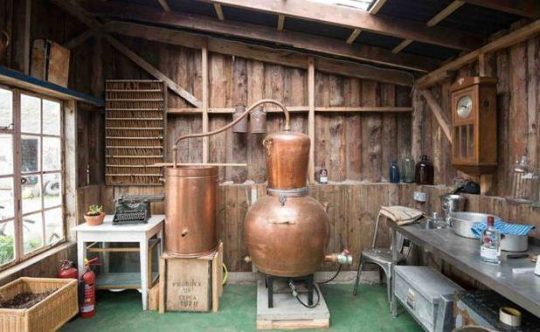
Council then don’t wanna know what you end up using your shed for down the track. (No Smoking !) Council: “Nothing to see here!”
(3) An ‘exempt’ larger shed
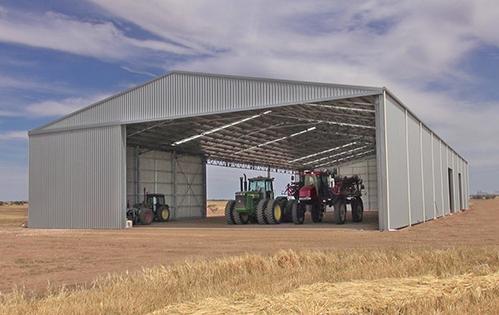
In our Blue Mountains Council case, shed scale and boundary setback matter diddly squat. Suitable for whatever you may wish – aircraft hangar?, sheep shearing?, a tannery?, doomsday food storage?, a meths lab?, a pistol range?, illegal sub-housing?, a brothel?, storing stolen goods, an illegal casino, a mosque, a torture chamber, a morgue? Council: “Nothing to see here!“
(4) An ‘exempt’ party cabana

A party shed – Council don’t wanna know. Any neighbour noise complaints – just call Fair Trading instead! Council: “Nothing to see here!”
(5) An ‘exempt’ backyard sauna
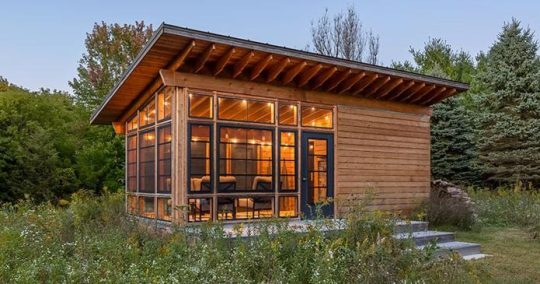
An ideal holiday let lure. How to host a social sauna and plunge gathering: (Read More) Council: “Nothing to see here!”
(6) ‘Exempt’ (habitable?) sheds, mmm
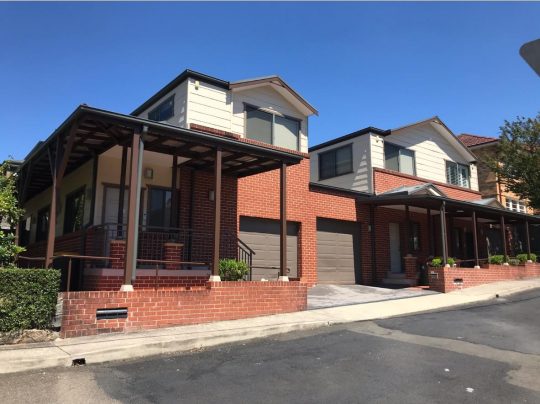
Council-approved ‘swing-a-rat’ townhouse subdivision (x6) at 39 Warialda Street in Katoomba (circa 2017). Habitable? Mmmm. Bugger all insulation space so through hot summer the aircon is on all to time to avoid air-frying – recall Peter Garrett (Matthew Fuller) style. Hey, just recently on 9th January 2026 it was 36o Celsius in Katoomba (in the shade). Council: “Nothing to see here!”
Now, this example at 39 Warialda Street, Katoomba, NSW above for decades had a proper house on the residential site on a land plot size of 1,402 m². The house contained 3 bedrooms, 2 bathrooms, 1 parking space and a big Aussie backyard. It was pretty much typical traditional Katoomba residential, just like the photo below shows the red tiled houses on the right-hand side.
However, in 2015 it sold for $408,000 to a property developer. Then Blue Mountains {city} Council approved the house’s demolition and with no regards for amenity approved six ‘swing-a-rat’ ‘studio’ townhouses be built on the same site. Check out the aerial photo below (the grey ColourBond rooves on the left).
According to RealEstate.com, in 2026 median property price in Katoomba over the last year for units is $585,000. So this developer/owner of at 39 Warialda Street is currently sitting on $3.5 million ($585,000 x 6) of real estate, thanks to Council. Is he/she known to Council perhaps, or even on Council, perhaps? We term it ‘Mountains Money Grab‘ and it comes with ‘bugger the village amenity’ greedy {city} attitude.
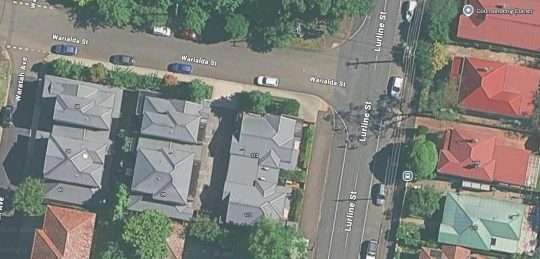
Aerial view of 39 Warialda Street Katoomba. Tree shade on rooves? Zilch! [Source: Google Maps, 2026]
(7) ‘Exempt’ shipping container habitable ‘shed’ living
Not exactly Blue Mountains lifestyle living, nor in any definition compliant with respecting Mountains amenity. Yet, Council let this shipping container inspired monstrosity on what was rural bushland become ’43 Loftus Street’ in Katoomba an go through its planning approval.
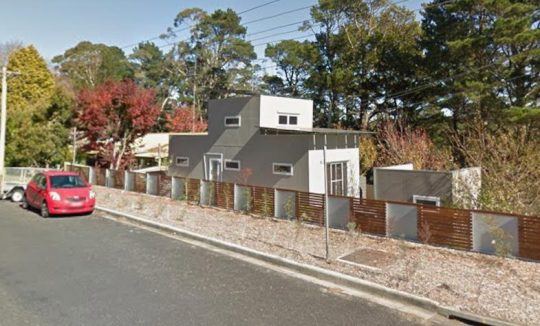
This is a friggen ugly build without question. We term it Gaza desert architecture. It does not add any sympathetic amenity to the surrounding heritage streetscape. The Blue Mountains need not be downgraded to some Khartoum primitive builds. That heritage tree (since killed and stump-ground) had been growing well left of photo on the verge. Council: “Nothing to see here!”
This lot had been a remnant of original bushland within The Gully Catchment above Katoomba Falls – and supposedly a heritage a naturally protected area. But Council over decades had allowed it to be destroyed by ‘a thousand cuts’ over time by land use development down to a narrow pointy verge-type plot intersecting Neale Street and Loftus Street in Katoomba. Worse, was that a huge healthy mature rare Eucalyptus oreades gum tree (dating probably over 300 years old – a measured girth of 5 metres DBH*) was killed in order to make way for this shitty shipping container build. Then just five years later , the owner sold up and went elsewhere – typical ‘robber-baron’ style anthropocentric personal greed and abuse of native habitat.
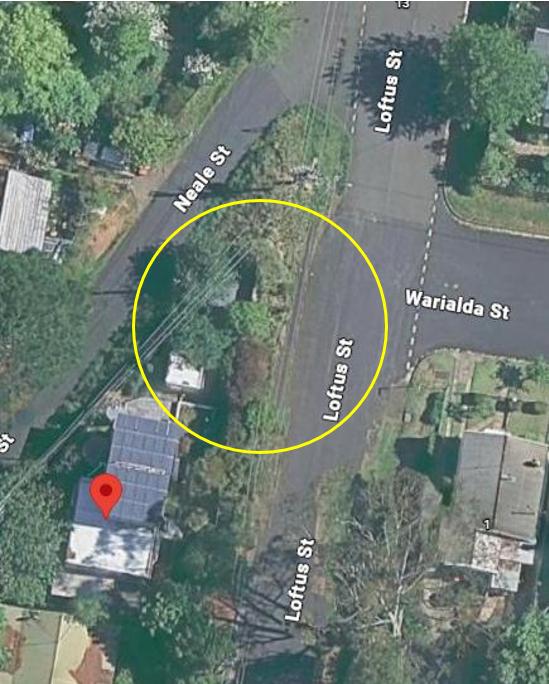
43 Loftus Street in Katoomba showing (in yellow) the approximate extent of the tree canopy of this majestic Eucalyptus oreades as observed over years by this author. (We are currently searching our records of a photo of this tree that this author took, which we have on file, and shall add once found). Note the grey solar panels on the roof – those values got it approved through Council for being ‘Green’, but bugger the heritage tree.
* [NOTE: Scientifically, the standard height for measuring tree girth (circumference) is commonly referred to as Diameter at Breast Height (DBH). This measurement is taken at a consistent height above the ground to ensure comparable and repeatable data.]
And if you reckon that this ‘shipping container’ inspired build is a shocker, then consider the recent introduction of ‘pod’ accommodation in the {city} of Sydney.

The Pod Sydney. [Read More] So, Lithgow Prison eat your heart out! Note that the company running this low-brow bunk style accommodation is the same that owns travel agency Bookings.com in Connecticut (USA) [Read More] And guess also where Airbnb and Uber are based? Brave New World!
(8) An ‘exempt’ Lithgow Prison style toilet block
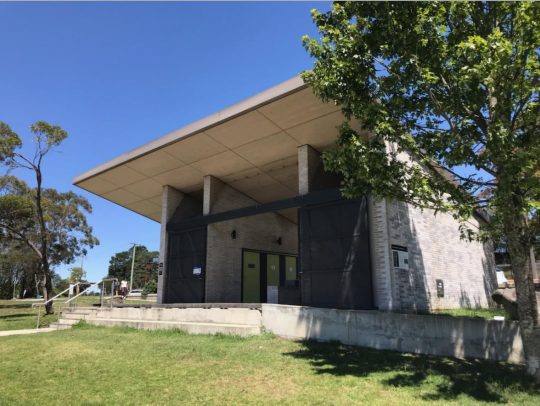
Another Council million-dollar toilet block at Wentworth Falls Lake. On ‘Council’ land (in reality zoned ‘Community Land’) so gets deemed ‘exempt’ development – self-exempted by Council of course. It’s like a toilet on a grand stage (not that’s what uses would seek). It’s totally over the top and designed by a committee no doubt, compare with what was originally there. Council: “Nothing to see here!” Price is ‘commercial in confidence’.
(9) Council’s Civic Depression Centre in Katoomba – yep, ‘exempt’
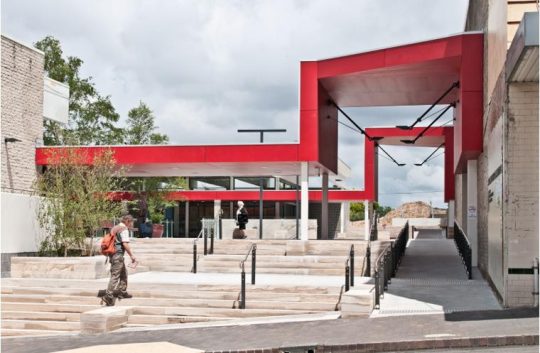
This empty shed place in downtown Katoomba has been tarted up by Council multiple times, yet locals have nothing to see here and avoid it. It’s so reminiscent Soviet! Council: “Nothing to see here!” And no reason to go there!
(10) Katoomba Falls Kiosk Shed ‘revitalisation’ – ‘exempt’
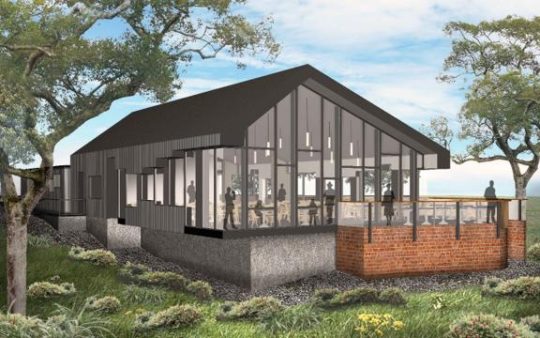
Down the track, revitalise your shed! Council ‘revitalisation’ of heritage exempts itself at its long-neglected Katoomba Falls Kiosk. Council: “Nothing to see here!” Locals said NO! Council skedaddled back to the drawing board, but paid the architect since not Council’s money; but local ratepayers’ money.
(11) Another Council ‘exempt’ million-dollar toilet block
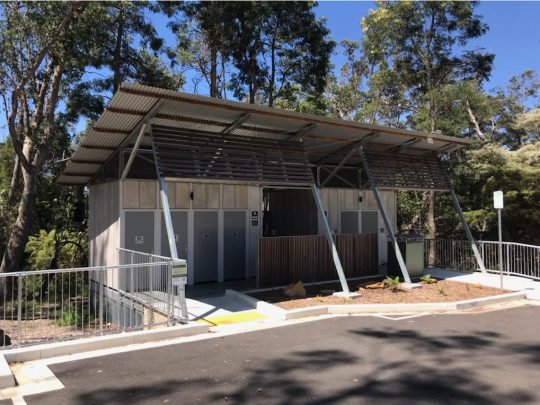
Blue Mountains {city} Council’s million-dollar splurge shed toilet, itself deeming it ‘exempt ‘ of course. Council: “Nothing to see here!, no more eco ‘long-drops’. Such lean-to rooves seem to be all the go by Council’s outsourced Sydney architect. Perhaps it’s only a matter of time before Council’s credit card parking fee regime extends to its tourist loos – but don’t give them any ideas. Council clearly uses the same architect repeatedly. [Photo by author 2026-01-09 at Gordon Falls Reserve, Leura, Blue Mountains.]
(12) Council’s aquatic shed – ‘self-exempted’
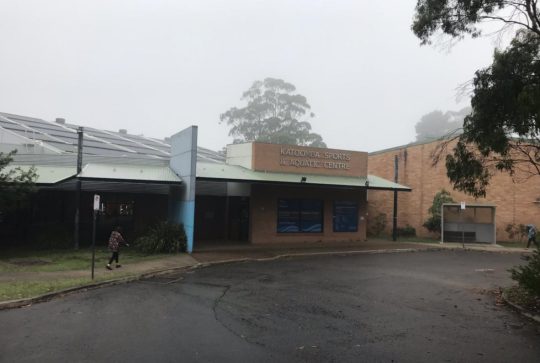
Council’s pool ‘shed’. It is massive over-development personified. Yet despite being on what was once pristine riparian habitat (and once a community church site (Redhill Street in The Gully) the joint is zoned ‘community land’ (by Council) meaning Council can bloody do what it wants with it. Like build and extend and extend and extend its pool to a Sports and Aquatic Centre to an industrial scale. Plus add a 100+ car park and RFS station next door, then bulldoze through a dedicated access road for the RFS.
(13) Skyway money invasion – ‘exempted’
(14) Council chambers – monolithic isolate – ‘self-exempted’
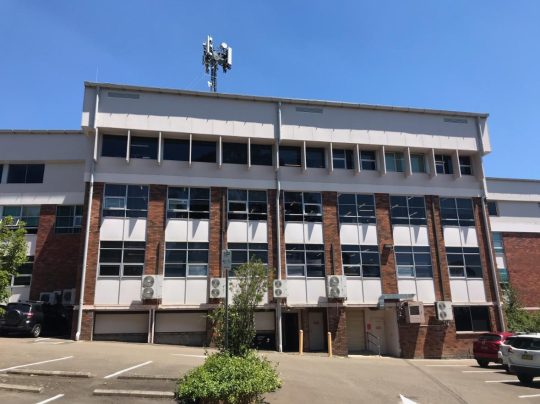
Council’s multi-storey ‘exempt’ shed, approved by Council. It’s isolated (so safe from questioning ratepayers) over the highway, with security since Clr Barry Morris bombing. The build harks to a rather Soviet Brutalist Architecture.
(15) Barangaroo twister?
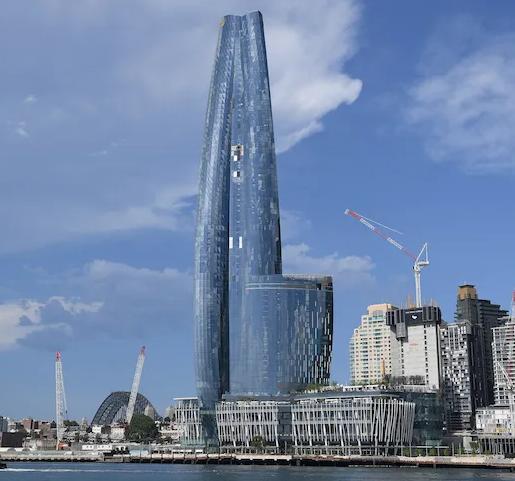
It’s dubbed by the media as ‘Packer’s Pecker’ (London’s gherkin on Viagra). City envy: it must be the envy of Blue Mountains {city} Council. Council management come from Sydney and reckon the Blue Mountains is – their slogan “a city within World Heritage” In Sydney, this high-rise could well be deemed an ‘exempt shed’. But the use of it as a has proven tricky given the money laundering by Chinese gamblers.
(16) Another conceivable ‘exempt’ example under this ‘cop out’ unaccountability regime
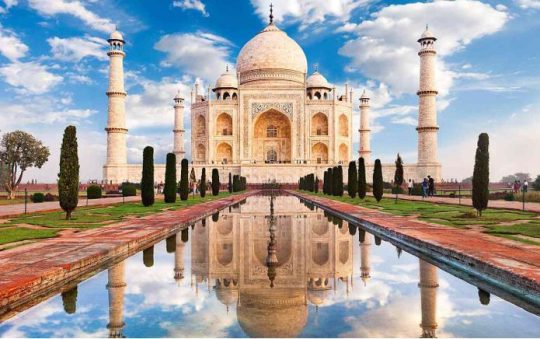
An indulgent fancy shed, replete with turrets and a private lap pool out front encased in a manicured parterre garden. Nice, except if you live next door. This joint attracts around 7 to 8 million visitors annually, which averages to 3000 large bus loads per week needing parking (bus parking not shown in photo – as puts visitors off). But hey, back in the Blue Mountains at iconic visitation Echo Point, private car Council parking fees are $12 per hour, whereas Council lets tour buses (large 50-seater) get away with $0.26 per pax, except Council doesn’t do the counting, the driver sort of does. 😂😂
We’ve since learned that local Blue Mountains (City) Council have a development compliance ‘team’ so supposedly ensure that property developments meet the rules of where they are situated – like in a residential area, bushfire zone, on a steep slope, next to or within native habitat, or just bulldozed and rebuild!
Sydney attitude, Sydney mandate – state-wide! So, Council’s message to would-be cowboy developers is clear:
Council: “So hey developers, go for it! No rules, just do what ya want! Nothing to see here by Council!”
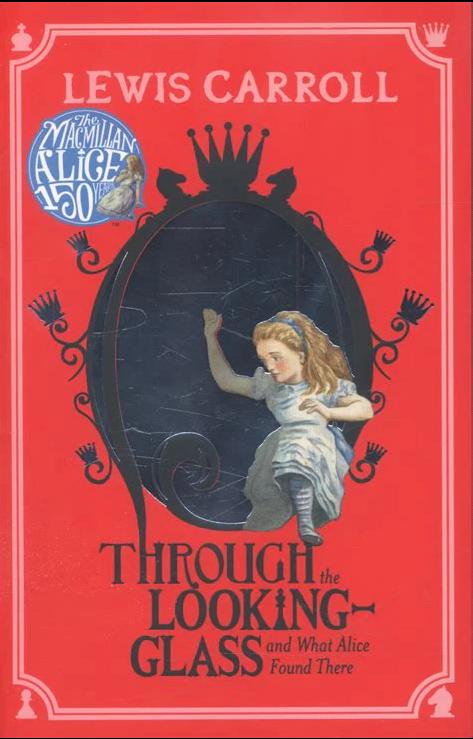
“When I use a word,’ Humpty Dumpty said, in rather a scornful tone, ‘it means just what I choose it to mean – neither more nor less.’ ‘The question is,’ said Alice, ‘whether you can make words mean so many different things.”
…Alice’s second adventure takes her through the looking-glass to a place even curiouser than Wonderland. She finds herself caught up in the great looking-glass chess game and sets off to become a queen. It isn’t as easy as she expects: at every step she is hindered by nonsense characters who crop up and insist on reciting poems. Some of these poems, such as ‘The Walrus and The Carpenter’ and ‘Jabberwocky’, are as famous as the Alice stories themselves.
As for Judy Le Breton, she’s has taken the definition of a ‘shed’ “one step beyond…”
